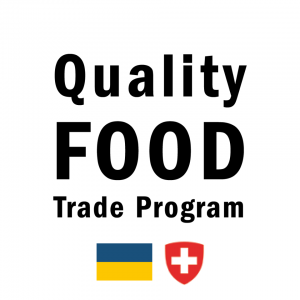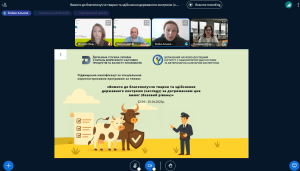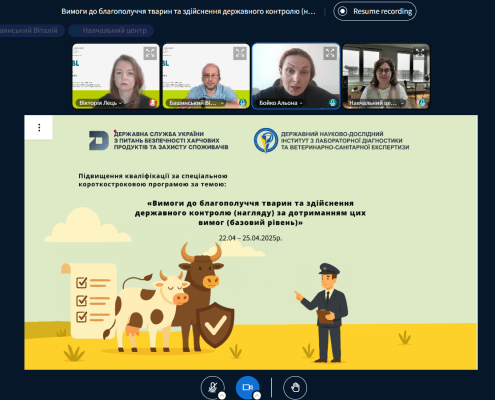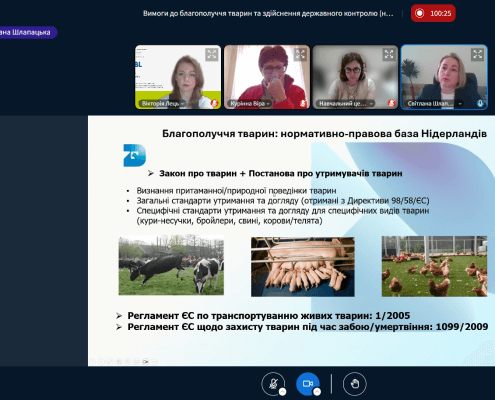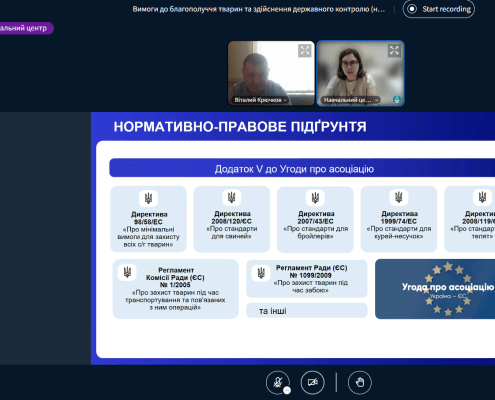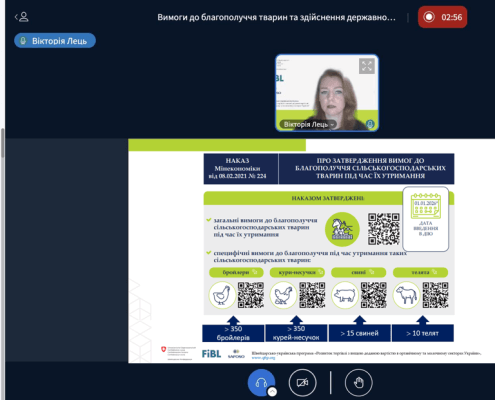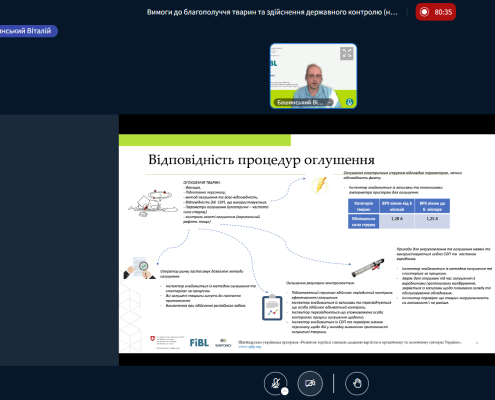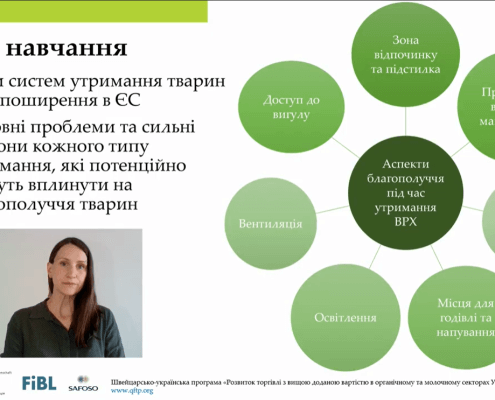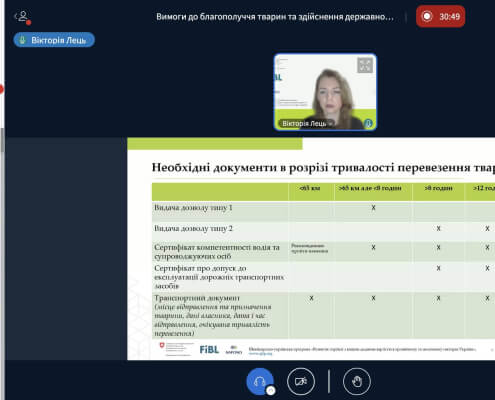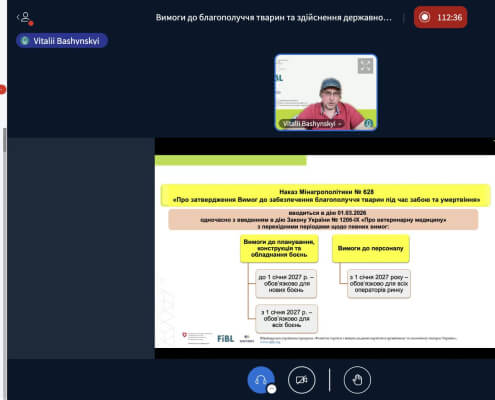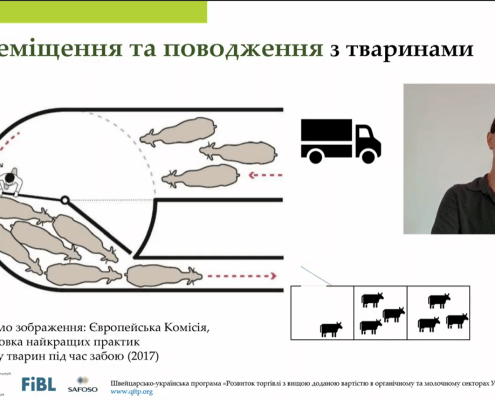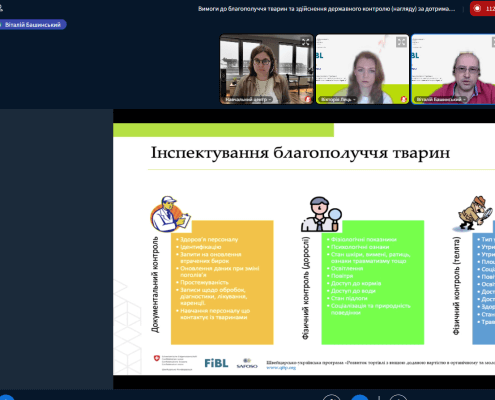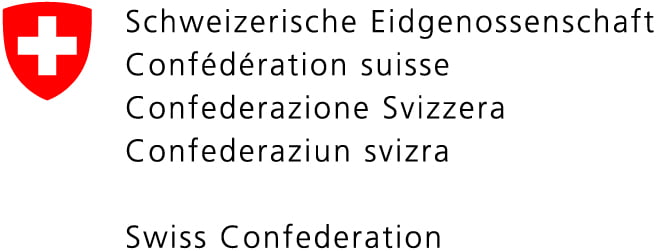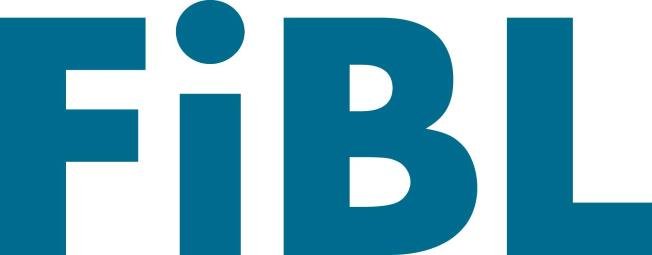The SSUFSCP’ Specialists Trained on Welfare Requirements for Farmed Animals
From April 22 to 25, 2025, a professional development training was held for specialists of the State Service of Ukraine on Food Safety and Consumer Protection (SSUFSCP) in accordance with the approved special short-term program “Animal welfare requirements and state control (supervision) over compliance with these requirements (basic level)”.
The training was organized and conducted by the Training Center of the State Scientific Research Institute of Laboratory Diagnostics and Veterinary and Sanitary Expertise (hereinafter – SSRILDVSE), with support from experts of the Ministry of Agrarian Policy and Food of Ukraine (hereinafter – MAPFU), the head office of the SSUFSCP, as well as specialists from the Swiss-Ukrainian Programme “Higher Value Added Trade from the Organic and Dairy Sector in Ukraine” (hereinafter – QFTP) and the EU Project “Continued Support to align Ukrainian legislation, control and awareness with EU acquis in food safety, animal health and welfare, and phytosanitary“(hereinafter – EU4SaferFood).
The training was held online and gathered more than 140 participants, including representatives of the Main Administrations of the SSUFSCP, Interregional Main Administrations of the SSUFSCP, State Veterinary Hospitals, as well as authorised persons responsible for certain official control measures on animal welfare. This number of participants demonstrates the importance of this topic, as the implementation of animal welfare requirements is an important aspect of Ukraine’s integration into the EU and the development of international trade, and also reflects a strong public demand, particularly in EU member states.
Igor Lotskin, Director of the Department of Food Safety and Veterinary Medicine of the SSUFSCP, during his welcome speech noted that intensive preparations are underway for the bilateral meeting between Ukraine and the European Commission within the framework of the official screening of the alignment of Ukrainian legislation with EU acquisunder the negotiating title 12 “Food Safety, Veterinary and Phytosanitary Policy”, which will, in particular, assess the state of implementation of EU acquis on farmed animal welfare in Ukraine: “The national legislation on farmed animal welfare equivalent to the EU requirements will soon become applicable and mandatory for all food business operators, therefore, for the effective implementation of these requirements, it is necessary to carry out awareness raising activities for businessoperators and training of specialists of the competent authority in order to carry out official control measures for compliance with these requirements”.
The purpose of this training was to increase the level of professional knowledge and competencies necessary to ensure a unified approach to state control over food business operators’ compliance with national legislation on the welfare of farmed animals during keeping, transportation and killing.
The training was kicked off by EU4SaferFood experts Vitalii Bashynskyi and Liudmyla Stepura, who highlighted the basic approaches to farmed animal welfare in accordance with the World Organisation for Animal Health (WOAH) Terrestrial Animal Health Code and EU regulations, and explained the need to implement animal welfare requirements in Ukraine and create an effective system to control bussines operators’ compliance with such requirements.
Svitlana Shlapatska, Head of the Animal Health and Welfare Unit of the Directorate of Animal Health and Welfare, Organisation of Anti-Epizootic Measures of the Department of Food Safety and Veterinary Medicine of the SSUFSCP, who recently participated in a study visit to the Netherlands, spoke about the experience of this EU member state in implementing requirements for the welfare of farmed animals and carrying out official control measures to ensure compliance with these requirements.
Vitalii Kriuchkov, Head of the Unit for Animal Health and Welfare of the Department of State Policy in the Field of Sanitary and Phytosanitary Measures and Food Security, MAPFU, presented the current state of implementation of EU requirements for farmed animal welfare in national legislation, plans to complete the implementation process and highlighted the dates of entry into force or applicability of this legislation.
Viktoria Lets, Senior National Expert of the Dairy Sector Component, QFTP, spoke about the requirements of national legislation on the welfare of farmed animals during their keeping, which are fully aligned with EU requirements and approved by the Order of the Ministry of Economy of 08 February 2021 No. 224. These requirements will become applicable on 01 January 2026 and will be mandatory for all business operators. Julia Hüttl, International Expert of the Dairy Sector Component, QFTP, presented practical aspects of ensuring the welfare of cattle and calves during their keeping, and Vitalii Bashynskyi, Consultant of the Dairy Sector Component, QFTP, explained the principles of inspection of business operators’ compliance with the requirements of the legislation on the welfare of farmed animals during their keeping.
The EU rules on animal welfare during transport are only partially transposed in the Resolution of the Cabinet of Ministers of Ukraine of 16 November 2011 No. 1402 “On Approval of the Rules for the Transport of Animals”, the requirements of which must be complied with by food bussines operators engaged in the transport of animals, including farmed animals. Ukraine’s integration into the EU requires full implementation of EU acquis in national legislation, so Vitalii Kriuchkov briefed the participants on the plans of the MAPFU to achieve this. Viktoria Lets presented the experience of EU member states in ensuring compliance with the requirements of legislation on the welfare of farmedanimals during their transportation, which enabled the participants to understand how the legal norms are implemented in practice and how the system of official control over their compliance functions.
The requirements of the national legislation on ensuring animal welfare during slaughter and killing, which were approved by the Order of the MAPFU of 29 August 2022 No. 628 and are almost fully aligned with EU acquis, except for some aspects that will be brought into full compliance in the near future, were explained during Vitalii Bashynskyi’spresentation. He emphasized that these requirements will become applicable simultaneously with the enactment of the Law of Ukraine No. 1206-IX “On Veterinary Medicine” dated 04 February 2021, which is tentatively scheduled for 01 March 2026. To demonstrate the practical implementation of the requirements for animal welfare during slaughter, Yulia Hüttl presented in detail the specifics of the requirements for the welfare of ruminants during slaughter and international experience in ensuring such requirements, and Vitaliy Bashynsky highlighted the principles of inspection of business operators’ compliance with these requirements.
At the end of the training, Olena Boyko, Head of the Main Administration of the SSUFSCP in Cherkasy region, shared with colleagues the experience of food business operators preparing to obtain the right to export food products to the EU in implementing the requirements of EU legislation on animal welfare, as well as the approach to training specialists of the Main Administration of the SSUFSCP to ensure the inspection of such establishments to verify compliance with these requirements. She noted that this process required close cooperation of the parties involved and took a lot of time and resources, but as a result, business operators have noted the benefits of implementing animal welfare standards, in particular in ensuring improved animal health and economic benefits from entering the EU market.
Participants highly appreciated the event, in particular, the professionalism of the experts involved and the benefit of interactive sessions throughout the training, during which participants had to answer test or open-ended questions online, which contributed to better learning.
All participants who attended all days of the training and successfully passed the final test received certificates of professional development.
The materials and video recording of the training will be used to create a distance learning course, which will be available to specialists of the SSUFSCP in the “Self-education” section of the “Distance Learning module” of “HR Process Automation and Talent Management Systems Moco”.
This event is supported by Switzerland within the framework of the Swiss-Ukrainian Programme “Higher Value Added Trade from the Organic and Dairy Sectors in Ukraine” (QFTP) implemented by the Research Institute of Organic Agriculture (FiBL, Switzerland) in partnership with SAFOSO AG (Switzerland), and EU Project “Continued Support to align Ukrainian legislation, control and awareness with EU acquis in food safety, animal health and welfare, and phytosanitary’’ (EU4SaferFood).
